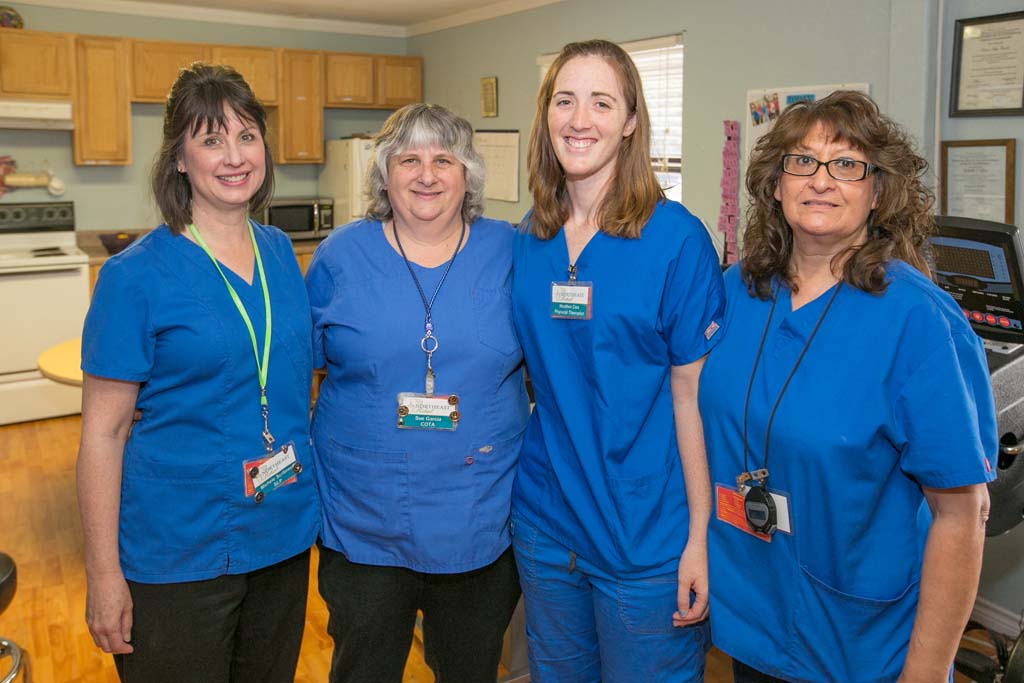These types of programs usually take place at outpatient drug rehab centers. Regardless, the expense of not getting treatment can be really high. For affordable inpatient and outpatient care, utilizing an insurance service provider can assist cover the expense of rehabilitation. Numerous insurance strategies cover substancemisuse treatment entirely. Speaking to an insurance service provider or a representative from a prospective program is a good location to start. The Recovery Village's insurance coverage confirmation tool can assist to work out practical choices.
The kind of treatment program is the biggest consider figuring out the length of time drug rehabilitation will be: Detox is normally around seven daysInpatient programs average 21 to 90 daysLong-term property care programs are normally three to 12 Home page monthsOutpatient programs depend on the intensity of the program, however they typically range from a few weeks to three monthsThe U.S. Unlike other drugs, hallucinogens appear to affect the receptors of serotonin neurotransmitters more than dopamine. Hallucinogens like LCD, DMT, peyote, psilocybin, and ketamine mimic serotonin and get in serotonin receptors in the brain, changing habits, character, and perceptions. Research study programs that hallucinogens can actually change the shape of neurons completely, permanently changing the method your brain sends out and gets messages.
Other hallucinogens can develop dependence nevertheless, and all of them can produce problems in the personal and professional lives of those who take them because of the extreme method they affect personality and habits. A lot of hallucinogens likewise provide a significant risk of overdose also. In addition to those illicit substances called above, there are more drugs that can produce dangerous dependencies, such as: Marijuana Inhalants Alcohol Nicotine Many drugs are addictive because of how they impact the brain's interaction system.

Drugs either promote the release of or mimic the actions of pleasure-creating neurotransmitters like dopamine and serotonin, producing temporary feelings of ecstasy and happiness. The brain is wired to look for more enjoyable feelings, which would normally be brought on by activities like sex or eating great food. When drugs create a rush of artificially developed satisfaction, the brain's natural inclination is to look for more pleasure.
As the user continues to consume drugs, tolerance develops, needing bigger amounts of the drug at each sitting to accomplish the very same high. The user will continue to increase the dose they take over time, and the brain will adjust to the consistent influx of neurotransmitters by slowing down its production of neurotransmitters and reducing the variety of satisfaction receptors.
Over time, the brain ends up being rewired and its interaction system will be completely modified. The result is that when the user stops consuming drugs, the system that has been rewired for a consistent influx of illegal compounds is unexpectedly left with no enjoyment chemicals at all. There is nothing to cancel the repressive systems that the brain has put into place, and a variety of agonizing and unpleasant drug withdrawal symptoms set in, like anxiety, insomnia, headaches, and a range of flu-like signs.

How To Get Into Drug Rehab If I Dont Have Insurance for Beginners
Besides the sometimes irreversible changes that drugs have on the brain, they likewise do a number on the physical health of your body in basic. Even from the very first usage, drugs have marked short-term impacts on the body, such as: Boost of harmful habits and sexual practices Damaging modifications in cravings Extreme wakefulness or sleepiness Results on heart rate and high blood pressure Increased danger of cardiac arrest or stroke Panic attacks Overdose and death Of course, a dependency assumes long-term usage of a substance, which will have even more devastating results on the body, depending on the substance.
Anybody that is having problem with an addiction to drugs or alcohol will benefit by going to rehab. Those who have experienced dependency know how difficult it can be to conquer it alone, and the healing environment of rehabilitation provides the assistance required to make an effective recovery. Rehabilitation consists of individualized treatment plans to assist clients recognize and get rid of the underlying issues that started their dependency.
In addition to dominating one's dependency, those participating in dependency treatment will also discover the essential tools for developing an efficient, healthy, and pleased life (how to get insurance to pay for drug rehab). Among the primary benefits of going to a rehabilitation facility is the structure that it offers you with. Treatment programs emphasize developing day-to-day regimens full of efficient activities and counseling sessions to assist keep clients engaged and remove distractions.
Patient's are permitted to sit, converse, and unwind frequently throughout the day during breaks and at night since it is necessary to not just discover brand-new coping skills however practice implementing them in a safe environment. When individuals have actually been experiencing an addiction to drugs or alcohol, they have developed behaviors and ways of thinking that both enable their dependency and discourage much healthier practices.
The structure of rehabilitation develops a simple day-to-day schedule that makes sobriety a top priority while preserving a balanced way of life that clients can stick to post-treatment. Continuing the structured methods of living learned through addiction recovery programs suggests you will feel less pressure to find relief in drugs or alcohol when you return house (how often does drug rehab work).
Another substantial benefit of drug and alcohol rehabilitation is the fact that clients will remain in a safe and supportive environment surrounded by individuals who understand exactly what each other are going through. Peer support is a main element of treatment and is definitely required to maintain long-lasting sobriety - how to involuntarily commit someone to drug rehab. An inpatient or outpatient rehabilitation program offers countless opportunities to get in touch with other individuals in recovery through support system and group treatment and to develop a network of support.